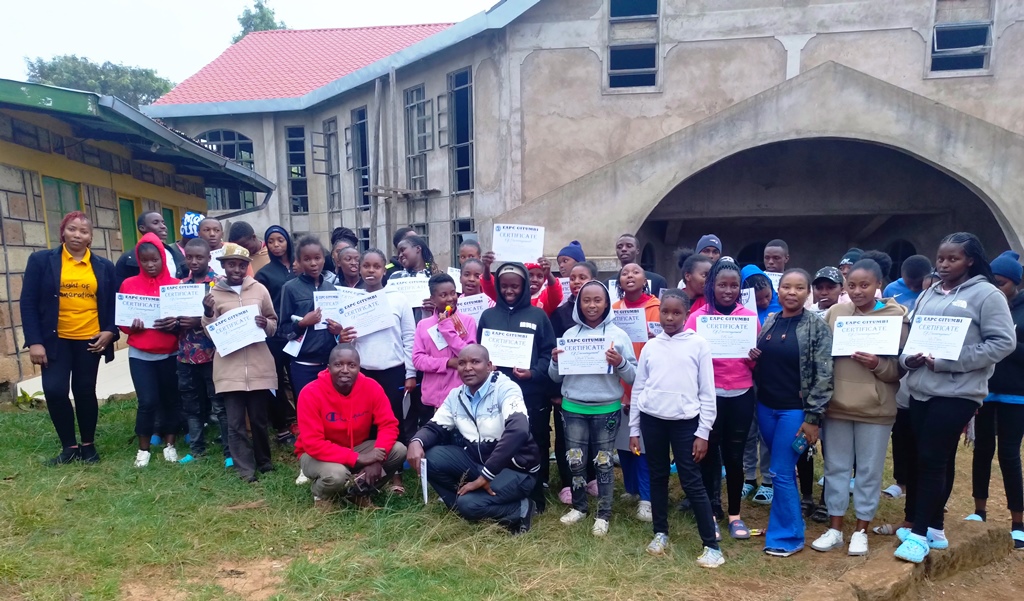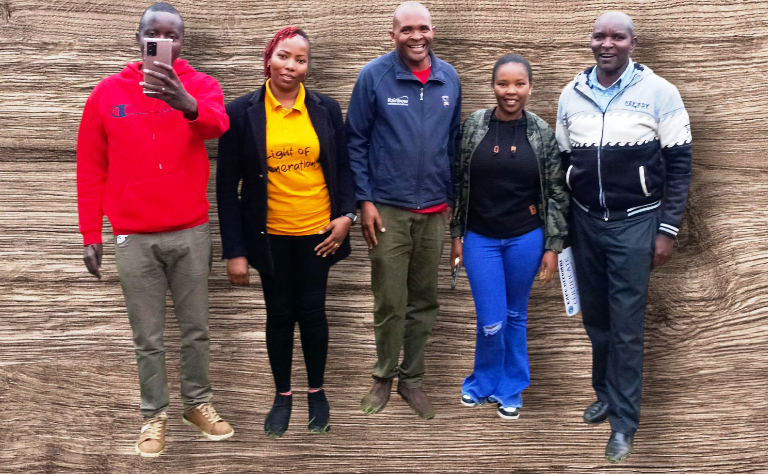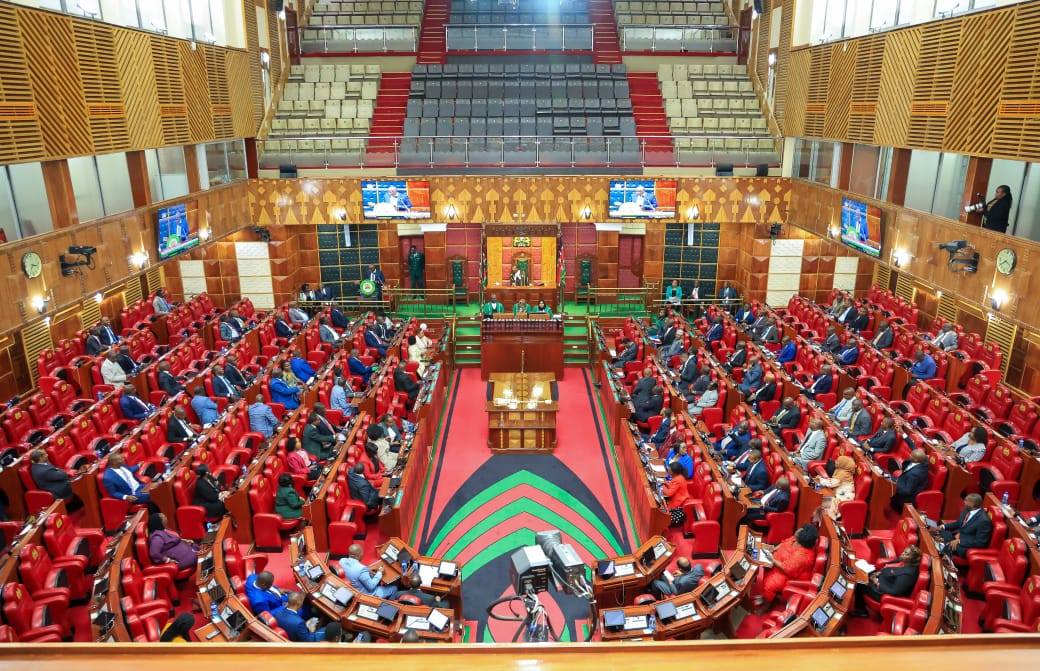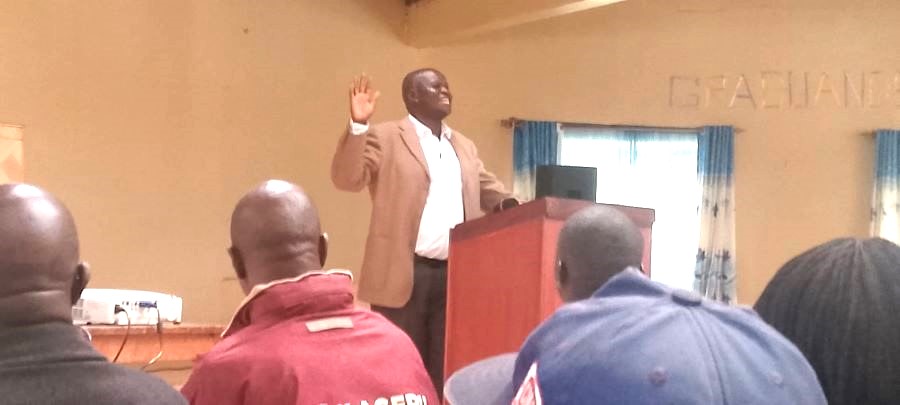School holidays often present both opportunities and challenges for young people. On one hand, they offer rest from academic pressures and a chance for social interaction. On the other, they can lead to idle time, exposure to harmful influences, or disconnection from structured learning and guidance.
In this context, churches have proven to be a critical force in positively shaping the lives of the youth during these breaks. The recent EAPC Gitumbi Career & Mentorship Talk Program held on Saturday, August 9, is a shining example of how faith-based institutions can create transformative experiences for young people during the holiday season.
The one-day event was intentionally designed to combine spiritual growth, practical life skills, career guidance, and mental wellness support – a holistic approach to youth development. The program began with a warm welcome and a spiritually uplifting Praise, Worship & Devotion session. This was not just a formality; it set the tone for the entire day, reminding participants of the foundation of faith as they engaged in discussions about their future and personal growth. For young people, grounding in spiritual values at the start of such an event reinforces the message that their careers and lives should be guided by integrity, discipline, and purpose.

One of the standout sessions was “Youth Potential” by Joseph, who joined via video call from Michigan State. His presentation addressed self-awareness, ambition and the importance of harnessing one’s talents and opportunities. Delivering this session virtually showed how churches can creatively leverage technology to expose local youth to global perspectives without the barriers of travel or cost. It was a powerful reminder that no matter where they are, young people can dream beyond their immediate surroundings and reach for international standards of excellence.
Recognizing the importance of mental health, the program featured Joseph Kathono, a clinical psychologist from Nairobi, who spoke on Mental Wellness. This was a particularly timely inclusion, given the growing awareness of mental health challenges among young people today. By discussing topics like stress management, self-esteem and resilience, the church demonstrated that caring for the mind is as important as nurturing the spirit. This is significant because churches have sometimes been perceived as focusing solely on spiritual matters; incorporating professional mental health guidance reflects a progressive, all-rounded mentorship approach.
READ ALSO:
The program also addressed relationship dynamics through a talk by Rosaline Kainyu, a lecturer from KMTC, Thika. Her session on Relationships gave young people practical tools for navigating friendships, romantic relationships and family connections in a healthy and God-honoring way. This was complemented later in the afternoon by her second presentation on Temptations & Sin, which tackled moral decision-making and the consequences of poor choices. These topics are particularly relevant during school holidays when young people often face peer pressure and have more unstructured time.
A highlight towards the end of the day was Dr. Njeri, an independent scholar from Arizona State, who spoke on “Becoming the Best Version of Myself.” Delivered via video call, this session was both motivational and practical, encouraging the youth to set high standards, work on self-improvement and live intentionally. The fact that the speaker connected from the United States again underscored the event’s ambition to connect local youth to global mentors and ideas.
What made the EAPC Gitumbi program especially effective was its structure. Sessions were interspersed with ice breakers, which helped maintain engagement and create a relaxed atmosphere for learning. There were also breaks for tea and lunch, giving participants time to interact informally with mentors and peers. This mix of structured learning and casual networking ensured that the youth remained alert, connected and participative throughout the day.
From a broader perspective, such initiatives illustrate several key roles that churches can play during school holidays:
Providing safe spaces
Churches offer a safe and nurturing environment where young people can gather without fear of negative influences. For many parents, knowing their children are spending their holiday in a supervised, values-based setting brings peace of mind.
Offering holistic development
By combining spiritual, mental, emotional and career-oriented sessions, the church caters to the whole person. This contrasts with some holiday programs that may focus narrowly on entertainment or purely academic work.
Filling educational gaps
Career guidance, mental health awareness and relationship education are not always comprehensively addressed in the school curriculum. Churches can step in to bridge these gaps in an accessible and godly way.
Connecting youth to role models
Exposure to professionals and mentors, whether local or international, helps young people expand their horizons and gain practical insights from those who have walked the path ahead of them. That way, the young people are able to become the best version of themselves, like Dr. Njeri rightfully put it.
Encouraging positive peer interaction
Structured programs encourage healthy friendships and collaborations among peers who share similar values, reducing the risk of negative peer pressure especially during the school holidays.
Events like the EAPC Gitumbi Career & Mentorship Talk are more than just one-day programs – they are investments into the future of the community. The lessons learned, connections made, and inspiration received during such gatherings can influence a young person’s choices for years to come. Moreover, the ripple effect means that attendees often share what they’ve learned with friends and family, extending the impact beyond the church walls.
As school holidays continue to present both opportunities and challenges for young people, churches should be encouraged to replicate and expand such initiatives. Partnerships with professionals, educational institutions, and even international mentors can enhance the quality and reach of these programs. If done consistently, they can help raise a generation that is spiritually grounded, mentally resilient, socially responsible, and professionally prepared.
In a world where young people face complex pressures and choices, the church can remain a beacon of guidance, hope and empowerment. The EAPC Gitumbi program has shown that with intentional planning, collaboration and a heart for the youth, churches can play a vital role in shaping futures during the precious window of school holidays.
By Ashford Kimani
Ashford teaches English and Literature in Gatundu North Sub County and serves as Dean of Studies.
You can also follow our social media pages on Twitter: Education News KE and Facebook: Education News Newspaper for timely updates.
>>> Click here to stay up-to-date with trending regional stories
>>> Click here to read more informed opinions on the country’s education landscape






